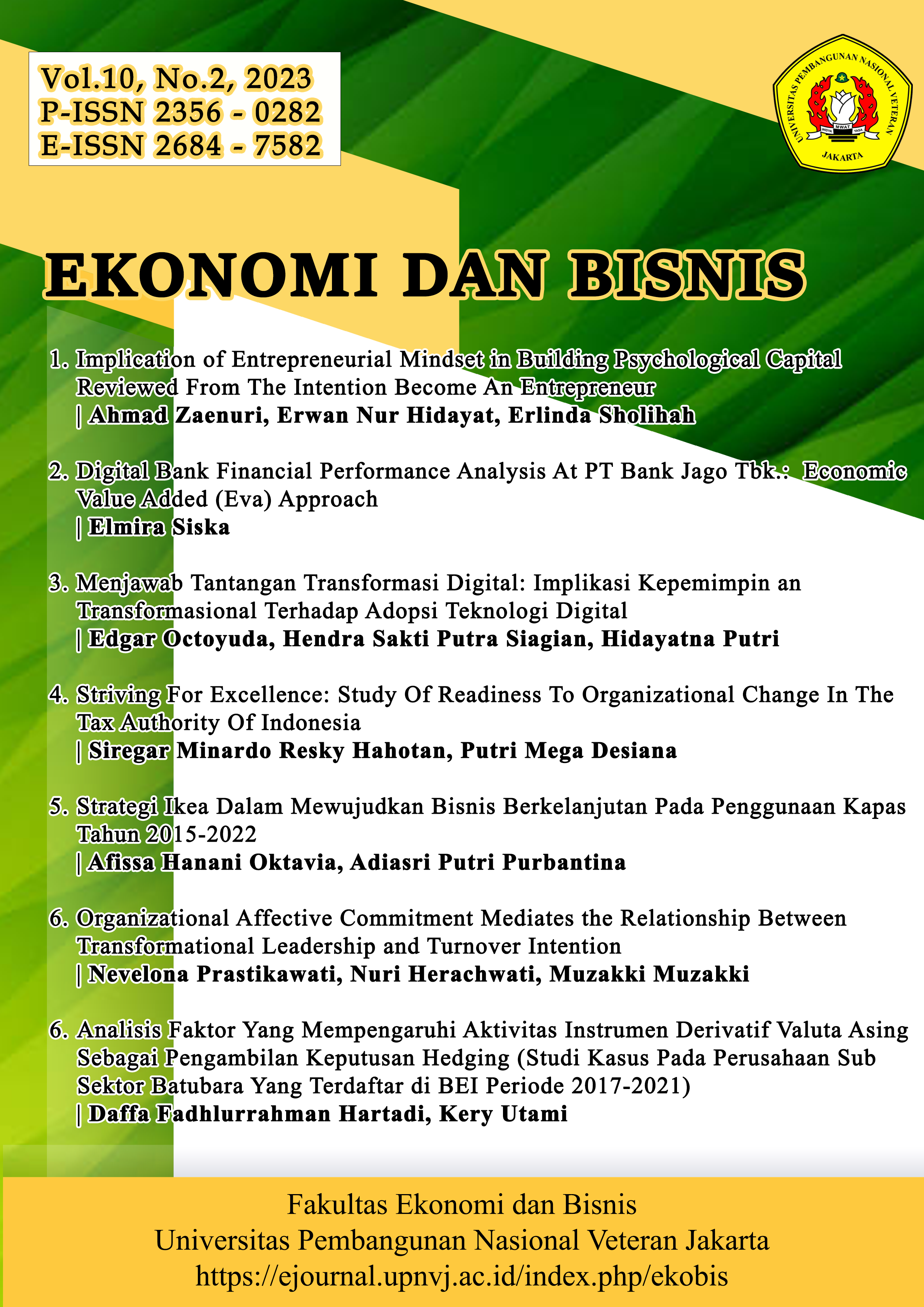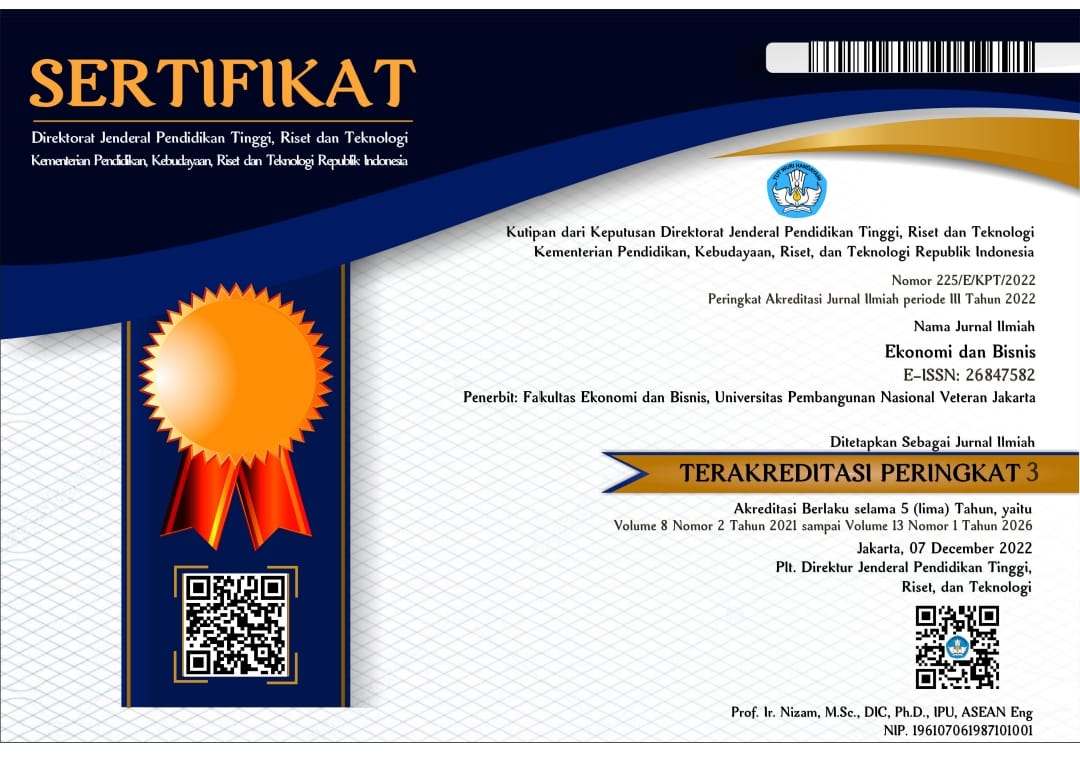Organizational Affective Commitment Mediates the Relationship Between Transformational Leadership and Turnover Intention
Abstract
Turnover intention is a phenomenon that has garnered attention in today's workplace environment. It refers to individuals' desire to leave their current jobs in the near future. This phenomenon is significant as it can impact organizational stability, recruitment costs, and employee productivity. The aim of this study is to assess the influence of transformative leadership on turnover intention and affective commitment. The role of affective commitment as a mediator is also examined in this research. A quantitative research approach is employed, and the sample size consists of 160 participants from a total population of 255 individuals. Several departments participated in this study, including Accounting, Operations, Marketing and Sales, Recruitment, Human Resources, Treasury, IT Management, and Support Departments. To evaluate the hypotheses, this investigation utilizes a data analysis technique known as Partial Least Squares (PLS). The findings of this research indicate that there is substantial evidence showing that transformative leadership negatively impacts employees' intention to resign from their current positions and positively influences affective commitment. Furthermore, it is revealed that affective commitment serves as a mediator between the correlation of transformative leadership and employees' inclination to resign from their roles. This study examines practical implications as well as relevant research recommendations pertaining to the core issue.
Downloads
Published
How to Cite
Issue
Section
License

This work is licensed under a Creative Commons Attribution 4.0 International License.
Authors who publish with this journal agree to the following terms:
Authors retain copyright and grant the journal right of first publication with the work simultaneously licensed under a Creative Commons Attribution 4.0 International License that allows others to share the work with an acknowledgment of the work's authorship and initial publication in this journal.
Authors can enter into separate, additional contractual arrangements for the non-exclusive distribution of the journal's published version of the work (e.g., post it to an institutional repository or publish it in a book), with an acknowledgment of its initial publication in this journal.
Authors are permitted and encouraged to post their work online (e.g., in institutional repositories or on their website) before and during the submission process, as it can lead to productive exchanges, as well as earlier and greater citation of published work.
This work is licensed under a Creative Commons Attribution 4.0 International License.












